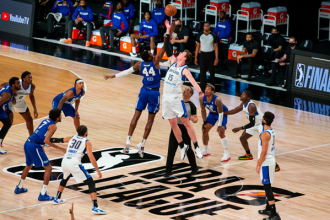Stepping into the best Maui Pharmacy seems simple enough—grab what’s needed, maybe chat with the pharmacist, and head to checkout. But anyone who’s ever wandered the aisles a little too long, unsure whether brand-name or generic is the better choice, knows it’s not always that straightforward. And with so many options, fine print, and ever-changing deals, knowing a few key tricks can make every trip smoother, faster, and even save some money.
Know What You Need—And What You Don’t
A pharmacy stocks everything from cold medicine to skincare, but not everything on those shelves is necessary. It’s easy to get lost in the marketing hype of “extra strength” and “fast-acting” labels, yet many products are just variations of the same active ingredients. Understanding what truly works can prevent buying overpriced or unnecessary items.
For over-the-counter medications, the active ingredient list is the real MVP. A generic version often has the exact same formula as a name-brand one but costs significantly less. Pharmacists can confirm this if there’s ever doubt. That flashy packaging might be persuasive, but it’s the ingredients that matter most.
The Pharmacist is an Untapped Resource
Many people assume pharmacists are just there to fill prescriptions, but they can actually help with much more. Not sure which allergy medication causes the least drowsiness? Confused about whether two medications mix well? A pharmacist has the answers—and asking them costs nothing.
Unlike a rushed doctor’s visit, pharmacists often have the time to explain things in a way that actually makes sense. Even for minor issues like a lingering cough or muscle pain, their advice can point toward the best solution. And if a product isn’t necessary at all? A good pharmacist will be honest about that, too.
Prescription Costs Aren’t Set in Stone
Medication pricing is a wild game. The same prescription can vary widely in cost depending on insurance, pharmacy location, or available discounts. Many assume that whatever price is quoted is final, but there are ways to lower it.
Some pharmacies offer discount programs that can reduce out-of-pocket costs, even for those with insurance. Others accept manufacturer coupons, which can be found online for certain medications. It’s worth asking if a lower-cost alternative exists—sometimes a different dosage, brand, or formulation makes a big difference in price.
And here’s a little-known trick: paying out-of-pocket can occasionally be cheaper than using insurance, especially for generic medications. Pharmacists can check that, but only if asked.
Don’t Fall for Fancy Labels in the Wellness Aisle
Health supplements, vitamins, herbal remedies—these sections are packed with options, each one promising better sleep, stronger immunity, or glowing skin. But not all supplements are backed by solid research.
While some vitamins and minerals are necessary (especially if a doctor recommends them), many trendy supplements rely more on good marketing than science. Terms like “clinically tested” or “doctor-recommended” can be misleading, as they don’t always indicate real medical backing.
A good rule of thumb? If a supplement makes a claim that sounds too good to be true, it probably is. And just because something is labeled “natural” doesn’t automatically mean it’s effective—or safe.
Generic vs. Brand-Name: What’s Worth the Extra Cost?
When it comes to medications, generics are usually the smarter buy. They contain the same active ingredients as their brand-name counterparts and must meet the same safety standards. But there are some exceptions.
For medications with a narrow therapeutic index (where small dosage changes make a big impact), a doctor might prefer sticking with a specific brand. Some extended-release formulas also work slightly differently in generic versions.
For everything else—pain relievers, allergy meds, cold medicine—choosing generic is the way to go. The savings add up quickly.
Timing Matters More Than You Think
Pharmacy visits aren’t always predictable, but if there’s flexibility, certain times of day are better than others. Mornings, right after opening, tend to be the least busy, making it easier to get pharmacist advice without a wait. Afternoons can be hectic, especially around lunchtime when people run errands.
For prescription refills, avoiding the end of the day is key. Many pharmacies deal with last-minute rushes before closing, which can lead to longer wait times or even stock shortages for popular medications.
Final Thoughts: A Little Planning Goes a Long Way
Pharmacy visits don’t have to feel overwhelming. Knowing what to look for, when to ask questions, and how to save money can make a huge difference. A few simple changes—checking active ingredients, talking to the pharmacist, and being smart about pricing—turn a routine trip into a hassle-free experience.
And the best part? These small adjustments don’t just save time and money—they make sure every purchase is the right one.














